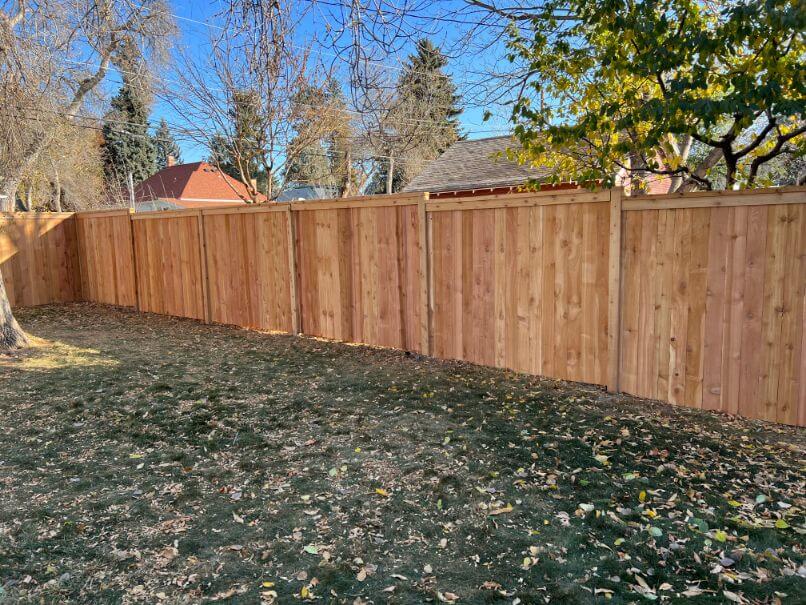All Categories
Featured

When intending to set up a fencing around your residential property, one of the initial steps is comprehending the permitting requirements in your location. Here's what you need to recognize concerning acquiring the required authorizations for your fencing setup.
Why Do You Need an Authorization for a Fence? A license is commonly required for fencing installations to make sure compliance with neighborhood structure codes, zoning legislations, and safety and security guidelines. Allowing helps neighborhood authorities maintain harmony in neighborhood aesthetic appeals, safety, and environmental considerations. It additionally ensures that the fencing does not interfere with utility lines or public spaces, and that it sticks to height and border constraints.

Typical Authorizations Needed for Fence Setup. Structure Permit. A lot of locations require a structure license for fencing installment, particularly if the fencing goes beyond a specific elevation (normally over 6 feet) or is made from non-standard materials. This permit makes sure that your fencing adheres to regional building codes. In some locations, the building department will certainly examine the website to ensure that the fence fulfills security and architectural standards.
Zoning Authorization. Zoning permits are made to make sure that your fencing follows regional zoning laws, including problems from residential property lines, easements, and rights-of-way. Zoning regulations vary from city to city, and in many cases, your fencing might require to be held up a certain number of feet from the walkway or roadway. If your fence is in a historic district or various other specifically assigned areas., a zoning authorization may also be required.

Fence License. In some places, a particular "fencing permit" might be needed. This is typically required when developing a fencing for property properties. The neighborhood government might specify the elevation, product, and style of the fence to guarantee it blends well with the surrounding area. Some cities limit chain-link fences in front lawns or have certain policies for personal privacy fences.
HOA Approval. If your home is component of a homeowners association (HOA), you may need approval before setting up a fencing. HOA standards usually consist of specific regulations concerning the type, elevation, shade, and materials for fences to keep the area's aesthetics. HOA regulations can be stricter than city codes, so always inspect their guidelines prior to relocating ahead.
Easement or Utility Licenses. If your fencing will certainly be near or throughout an easement (such as an utility easement), you may require to get permission from the utility firm or other entities that control the land. This is particularly vital if you intend to mine fence articles, as it ensures you will not damage underground energies like power, water, or gas lines.
Exactly How to Learn What Allows Are Called for. The finest means to establish which authorizations are necessary for your fence setup is to contact your local building division or community office. They can offer you with details info regarding needs in your area. Right here are a couple of actions you can require to locate out:
Check the City or Region Web site: Numerous city governments offer information about fence installation allows online. Seek structure or zoning sections on their website. Call or Browse Through Citizen Government Offices: If the details is not easily available online, calling or checking out the local office in person can clarify what's needed. Seek Advice From an Expert Professional: If you're not sure or overloaded by the process, a regional service provider or fencing installation business can assist in browsing the permitting process, as they know with neighborhood regulations. What Takes place If You Don't Obtain a License? Stopping working to acquire the essential permits can lead to a variety of effects. In lots of locations, you can deal with fines, and your fencing could be purchased to be gotten rid of. In addition, if you sell your residential property in the future, the absence of appropriate licenses can be a warning for purchasers and affect the sale. Permitting guarantees that your fencing is compliant and helps avoid future difficulties.
Final thought. Prior to mounting a fencing around your residential property, it's vital to examine whether a license is needed in your location. Building permits, zoning authorizations, HOA approval, and utility consents may all contribute in your fence installation procedure. Making the effort to research study and acquire the necessary permits will not just guarantee that you're adhering to regional regulations, but additionally aid safeguard your investment and maintain the stability of your residential property.
Latest Posts
Exactly How Do I Collaborate with a Fencing Professional to Style a Fence That Fits My Needs?
Published Dec 24, 24
0 min read
Can I Install a Fence on Irregular or Sloped Terrain?
Published Dec 24, 24
0 min read
What Allows Are Needed for Setting Up a Fence My Area?
Published Dec 24, 24
0 min read
More
Latest Posts
Exactly How Do I Collaborate with a Fencing Professional to Style a Fence That Fits My Needs?
Published Dec 24, 24
0 min read
Can I Install a Fence on Irregular or Sloped Terrain?
Published Dec 24, 24
0 min read
What Allows Are Needed for Setting Up a Fence My Area?
Published Dec 24, 24
0 min read